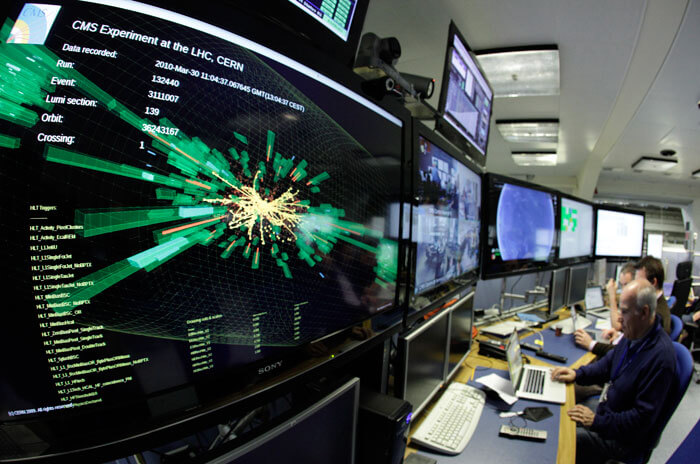'The God Particle' Large Hadron Collider back in action: Will help to answer outstanding questions?

After two years of structural and technological improvements, the Large Hadron Collider (LHC) located in Geneva Switzerland, is now back up and running. The improved atom smasher can initiate collisions at 13 TeV (Teraelectron-Volts), setting a new record of the highest energy level ever reached by scientists through the history of physics research. Scientists are hopeful that this new record energy for the LHC can give a deeper insight into our Universe and open a new chapter for science via discoveries made through it.
Sergio Bertolucci, CERN's Director for Research and Computing, described the improved LHC, the scientists working with him and the breakthroughs that can be made as "the best ship in the world. The most powerful ship in the world. The best crew in the world. And now we are ready to go for the next exploration."
The improvements made on the largest single-machine double the rate at which it can smash atoms. It can now smash a billion photon pairs within a second.
The particles, using the Large Hadron Collider, are smashed with each other at near speed of light. The high speeds will allow physicists to replicate scenarios some believe occurred in the moments after the so-called big bang theory. The LHC can supposedly help replicate the scenarios with high enough energy and speed from the smashed particles.
In 2012, prior to shutting down the LHC, scientists claimed to have detected the Higgs Boson - otherwise known as "The God Particle". Following the particle's believed detection, Peter Higgs and Francois Englert, received Nobel prizes the next year. This year's improvement to the LHC, scientists hope, will help address outstanding questions that the old version could not.
"It's also of course an important starting point, because this higher energy will allow us to address the many exciting outstanding questions in particle physics," said Fabiola Gianotti, CERN's incoming Director General.











